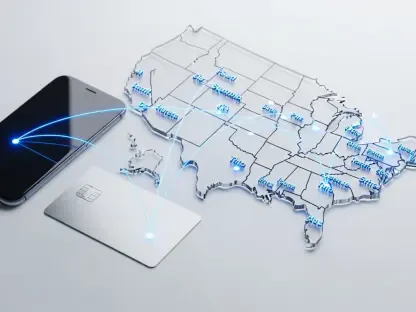I’m thrilled to sit down with Zainab Hussain, a renowned e-commerce strategist with deep expertise in customer engagement and operations management. With years of experience helping brands navigate the evolving landscape of digital communication, Zainab offers unique insights into how mobile-first solutions are transforming customer experiences. Today, we’re diving into the exciting world of Rich Communication Services (RCS), a cutting-edge messaging channel recently integrated into a leading customer experience platform. Our conversation explores how RCS addresses trust issues in traditional texting, enhances brand interactions, and opens new doors for personalized engagement across industries.
What inspired the move to incorporate RCS into the platform?
The decision to add RCS was really driven by a combination of customer needs and broader market shifts. Brands have been vocal about wanting a messaging channel that feels modern and secure, especially as trust in traditional SMS has taken a hit due to rampant fraud. We’ve seen staggering numbers—like consumer losses from text scams reaching $470 million in 2024 alone. That kind of environment pushes both brands and customers to seek alternatives. RCS emerged as a natural fit because it’s built to tackle these pain points head-on while offering richer, more interactive ways to connect.
How does RCS stand out compared to traditional SMS or MMS in terms of functionality?
RCS is essentially the next evolution of texting. Unlike SMS or MMS, which are limited to basic text and low-quality images, RCS operates within the native messaging app on a user’s phone and brings a whole new level of interactivity. Think high-resolution visuals, carousels for browsing products, and actionable buttons like “Buy Now” or “Reply.” Plus, it includes verified sender profiles, so customers see a brand’s name, logo, and a verification badge, which instantly builds confidence that the message isn’t a scam.
In what ways does RCS help combat the growing issue of SMS fraud and declining trust?
Trust is a huge challenge with SMS today, especially with smishing attacks skyrocketing. RCS addresses this directly with those verified sender profiles I mentioned. When a customer sees a branded message with a logo and a checkmark, they’re far less likely to question its legitimacy. It’s a visual cue that cuts through the noise of fraudulent texts. Beyond that, RCS enables secure, two-way communication, so brands can engage customers without the constant fear of being mistaken for a spammer.
What makes the native integration of RCS into your platform different from other solutions out there?
What sets us apart is that RCS isn’t just bolted on as an afterthought—it’s seamlessly embedded into the platform. Marketers don’t need to juggle third-party tools or deal with complex IT setups. They can use their existing SMS workflows to send RCS messages, and the system automatically detects if a customer’s device supports it. If not, it falls back to SMS or MMS without missing a beat. This kind of simplicity and reliability means brands can focus on crafting great experiences rather than wrestling with tech.
How can brands leverage RCS to drive better customer engagement compared to older messaging channels?
RCS opens up a world of possibilities for engagement that SMS just can’t match. With SMS, you’re limited to plain text and hoping the customer reads it. RCS lets brands send visually stunning messages with interactive elements—think a retail brand showcasing a new collection through a swipeable carousel with a “Shop Now” button. It’s immediate and engaging. Plus, metrics like read receipts give brands real-time feedback on whether their message resonated, allowing them to refine their approach on the fly.
Can you share some practical examples of how different industries might use RCS to connect with their customers?
Absolutely. In retail, a brand could announce a product drop with a rich carousel of images and direct “Buy Now” links, or send order updates with QR codes for easy pickup. For travel and hospitality, imagine sending flight updates with buttons to change seats or add reminders to a calendar. Financial services can use RCS for verified fraud alerts with secure “Report Issue” options or streamline bill payments with a “Pay Now” button. Even loyalty programs can send points updates or digital welcome kits. It’s incredibly versatile across sectors.
With Apple’s support for RCS in iOS 18, how do you see this shaping the future of messaging for brands?
Apple’s move to support RCS in iOS 18 is a game-changer. It’s taken RCS from a niche option to a mainstream channel overnight, with over a billion monthly active users globally now having access. We’ve already seen a reported fivefold increase in RCS traffic since the rollout, which speaks to how quickly adoption is ramping up. For brands, this means a much wider audience can now receive these rich, trusted messages, and I believe it positions RCS to become the default messaging channel for customer engagement in the near future.
What does the idea of ‘trust as the currency of today’s digital economy’ mean in the context of RCS?
That phrase really captures the heart of why RCS matters. In a digital world where customers are bombarded with messages, trust is what separates a brand from being ignored or flagged as spam. RCS builds that trust by ensuring customers know exactly who’s messaging them through verified profiles and by delivering secure, meaningful interactions. When a customer feels confident in a brand’s authenticity, they’re more likely to engage, convert, and stick around for the long haul. It’s about creating a foundation for lasting relationships.
What is your forecast for the role of RCS in shaping customer experiences over the next few years?
I think RCS is poised to redefine how brands communicate with customers. As adoption continues to grow—especially with major players like Apple on board—I expect RCS to become the standard for mobile messaging, overtaking SMS in both volume and impact. We’ll likely see even more innovative features emerge, like deeper AI-driven personalization within messages. For brands, it’s going to be a powerful tool to not only engage but also build loyalty in a crowded digital space. The focus on trust and interactivity will only become more critical, and RCS is at the forefront of that shift.









